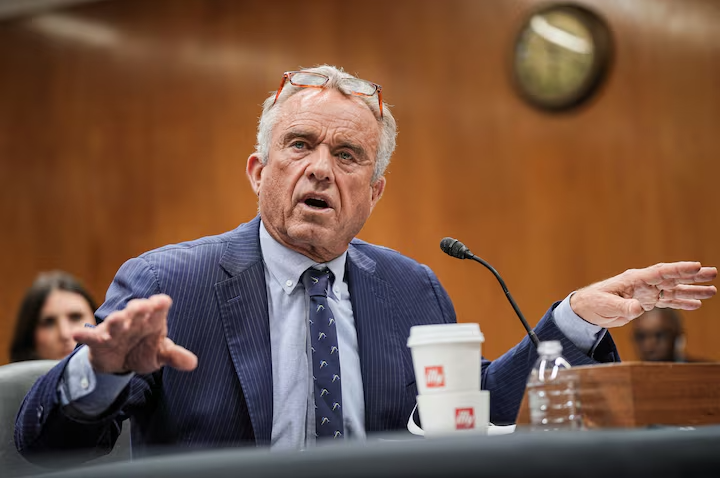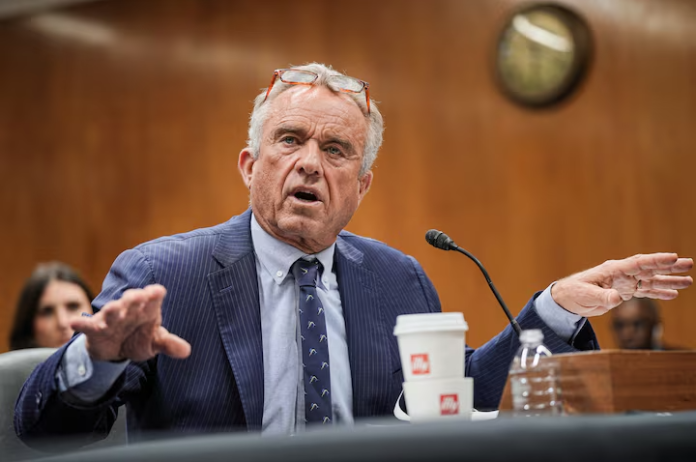In a move shaking the foundations of America’s public health system, U.S. Health Secretary Robert F. Kennedy Jr. has dismissed all 17 members of the CDC’s vaccine advisory committee. The Advisory Committee on Immunization Practices (ACIP), which offers expert guidance on how vaccines are used, will now be restructured under Kennedy’s leadership—a decision drawing swift backlash from scientists and healthcare professionals nationwide.
Kennedy, a long-time vaccine skeptic, claimed the overhaul is aimed at restoring public trust in U.S. health institutions. “This isn’t about pushing a pro- or anti-vaccine agenda,” he said in a statement released by the Department of Health and Human Services (HHS). “It’s about rebuilding confidence in how decisions are made.”
However, many experts fear the opposite. Critics argue that removing seasoned professionals from such a vital committee may do more harm than good. “This is deeply concerning,” said Jesse Goodman, former Chief Scientist at the FDA. “ACIP has always been a respected, scientifically-driven body. Political interference threatens its credibility.”
The ACIP, which holds its next meeting on June 25–27 in Atlanta, plays a crucial role after vaccines receive FDA approval. It determines which groups of people—children, the elderly, pregnant women—should receive the vaccines, and its recommendations affect insurance coverage and government-funded vaccination programs.
Kennedy’s decision has alarmed both sides of the political aisle. While all 17 ACIP members were appointed under President Biden’s administration, many lawmakers believe the committee has historically operated above partisanship. “This isn’t a political group,” said Dorit Reiss, a vaccine policy expert at UC Law San Francisco. “It’s an expert committee. Until now, presidents didn’t interfere in ACIP appointments.”
Even Republican Senator Bill Cassidy, a medical doctor who supported Kennedy’s appointment to the Trump administration, voiced concern. “There’s fear the new panel will be filled with people who have no scientific background—just suspicion,” Cassidy said on X (formerly Twitter), after speaking with Kennedy directly.
Kennedy insists that the current panel was riddled with conflicts of interest, stating that some members received funding from pharmaceutical companies. Yet, official records show no concrete evidence supporting those claims. While ACIP members are required to disclose any conflicts, only one member had recused herself from certain votes due to prior involvement in clinical trials.

The pharmaceutical industry has also responded with unease. The Pharmaceutical Research and Manufacturers of America released a statement warning that “upending the ACIP increases vaccine hesitancy and undermines decades of public health gains.”
Financial markets reflected this uncertainty, with shares of Moderna and BioNTech dropping over 1% in after-hours trading. Pfizer shares also saw a slight decline.
Kennedy’s track record on vaccine issues has been controversial. Recently, he reversed government recommendations for COVID-19 vaccinations in children and pregnant women—without going through the proper advisory process. And during a recent measles outbreak, critics accused him of offering lukewarm support for vaccinations despite mounting public risk.
With the next ACIP meeting rapidly approaching, some insiders doubt the new panel will be fully ready unless Kennedy has been secretly working behind the scenes for months. Whether this shake-up will truly restore trust or further fracture the nation’s already fragile public health landscape remains to be seen.



